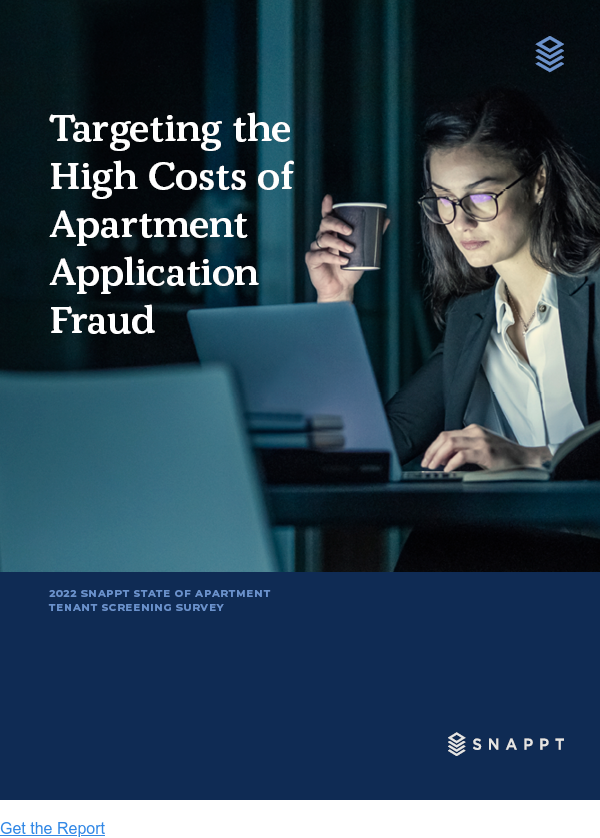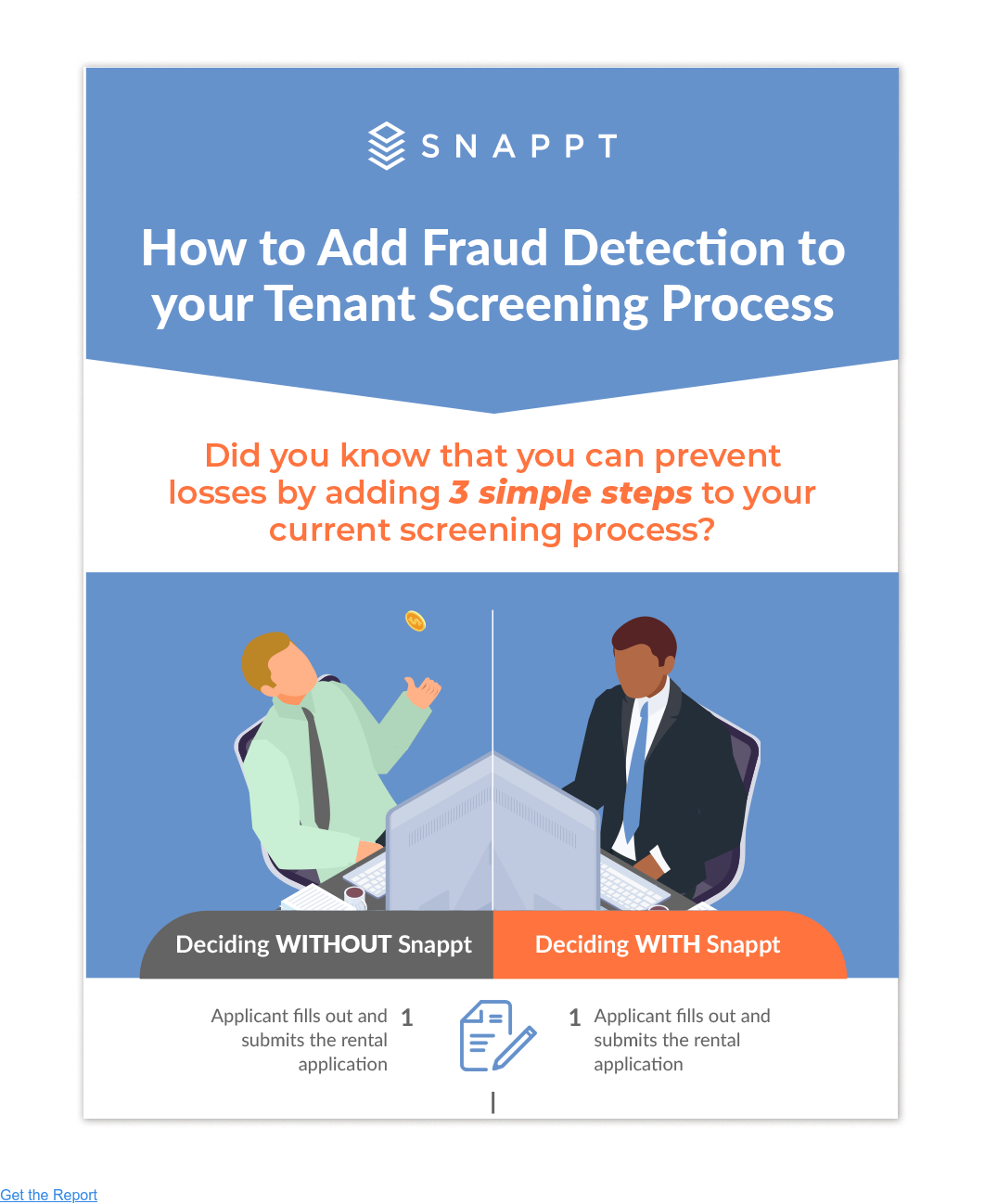Savvy property managers can play defense by using professional tenant screening services to check the applicant’s credit, income, rental, and eviction histories, as well as their criminal backgrounds – but is that enough?
What Are Residential Screening Services?
Allowing an unqualified renter to move into your property can result in losses due to damage, failed payments, legal actions, and high turnover costs. This is where residential screening comes in. Residential screening is a process to verify an applicant’s financial and criminal background to try to predict if they are likely to be a good tenant. There are many services on the market that landlords can use that utilize online database records and feed that research into a report for the landlord. Some provide a mix of digital and human research efforts.
A word of advice: Having access to this type of private data, however, comes with rules and regulations governed by the Fair Credit Reporting Act (FCRA). The laws change over the years, so be sure to work with an FCRA-compliant screening company stays abreast of the changes.
What Does a Residential Screening Report Provide?
A screening report aims to provide landlords insights into how the rental applicant will potentially perform as a tenant based on their history. For example, a property manager can see if the applicant has a history of late rental payments, was ever evicted, and in many cases for what cause. Some reports show if the applicant has high personal loan or student debt.
Most services verify Social Security numbers, address history, evictions, bankruptcies, and liens. Since many evictions are not reported to credit agencies, some providers maintain their own databases updated with initial filings, judgments, timely payments, and lease disputes. Premium services offer nationwide criminal and sex offender data.
Are Residential Screening Reports Accurate?
Unfortunately, many of the sources these reports pull from are inaccurate and therefore the usefulness of their speedy reports is questionable. Background checks on prospective tenants can come from any number of "free" databases. The challenge is that using automation to pull this information means that the data may not be checked against the identity of the applicant. Some providers address these inaccuracies by promoting the screening skills of their people so that they can perform manual screening supported by technology.
What do these screening services miss? Fraud detection
The residential rental industry is experiencing a significant rise in fraud activity among applicants. In a study performed by RezRez research, landlords saw a nearly 14% increase in applications containing financial document fraud. They also found that Property Managers reported that 53% of tenants are having trouble making rent. In fact, at the time of the survey, 25% of tenants were paying late, 17% paid less than full rent, and 11% stopped paying rent at all.
Maitri Johnson, vice president of TransUnion’s tenant and employment business explains, “Fraud continues to be an increasingly concerning issue in the multifamily industry for the last several years and the COVID-19 pandemic driven shift to virtual leasing has pushed this concern to the forefront for property managers. It is imperative that management companies take the necessary precautions and protect their business against the economic impacts brought on by the current environment, as well as the increased propensity for fraud that may not be easily evident today.”1
Fraud detection in residential screening
Catching fraud before it impacts your portfolio can save properties millions even when we are not in a recession. Property managers need to be aware of modern-day fraudulent practices that can trick property managers into renting to unemployed, financially unqualified, or otherwise deceitful persons.
When a prospective tenant modifies their financial documentation in order to qualify for a rental it opens the property up to financial risk. For example, prospects can inflate (or deflate) their income, or extend their employment dates using methods that are nearly impossible to detect with the naked eye. Regardless of your screening process, if your applicant is sneaking in fraudulent information – you will be at a loss.
How to catch fraud in residential applications
The data points that come with thorough background and credit checks are very important when qualifying an applicant, however, evaluating a tenant in 2020 is more than income and credit screening.
Spirited is the only financial document fraud detection software on the market designed specifically for property managers to identify financial document fraud. With a mission to deliver proactive financial documentation application fraud detection, Spirited has developed a fraud-detection solution that is affordable and integrates right into your existing tenant screening process. We use a comprehensive three-step approach to stop fraud before it hurts your bottom line. All it takes is a simple upload and within 24 hours you will have your documents verified.
Rent better with Spirited. Request a demo today.











